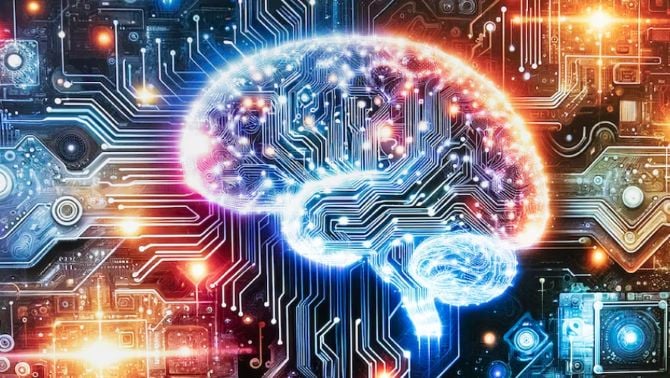
Illustration photo.
AI is present in almost all aspects of human life, from daily life to production, education , research, and artistic creation. AI helps people optimize their activities, increase productivity, and reduce human resources. The explosion of AI has shown the continuous growth of machine learning applications and big data technology, pushing artificial intelligence to a new level of development.
The instant convenience of using AI may come at the cost of long-term intellectual costs, experts say.
Brain dysfunction and “cognitive debt”
A four-month study by the Massachusetts Institute of Technology (MIT) has shed light on the profound effects of AI overuse on the human brain. The study, which tracked 54 essay-writing participants, found that relying on AI tools can impair brain function and critical thinking skills.
Using electroencephalography (EEG) technology, the researchers recorded the participants’ brain activity. The results were striking: The group using the AI tool exhibited significantly different neural patterns than the group that wrote only with their minds. This group showed up to 55% fewer neural connections than the group that wrote only with their minds, especially in regions responsible for deep thinking and memory formation.
Researchers call this phenomenon “cognitive debt.” Similar to financial debt, which allows us to enjoy benefits now but pay costs later, cognitive debt occurs when we outsource our mental effort to external systems, causing our mental muscles to atrophy due to disuse. If overused, AI could turn humans into passive consumers, losing the ability to think independently.
The consequences of reduced cognitive performance are clear:
Memory Impairment : In the first session of the MIT study, 83% of AI users were unable to cite from their own writing, and none were able to provide accurate citations. Even after multiple sessions, many still struggled with this basic task.
Weakened critical thinking : The use of AI leads to “superficial engagement” and weakens critical thinking skills, which can foster procrastination and “laziness.”
Reduced brain activity : Those who wrote their essays with AI assistance had significantly less brain activation, with regions related to memory, critical thinking, and executive function significantly reduced.
The crisis of knowledge creation and "paradigm collapse"
The problem with LLMs is not their ability to synthesize, but their ability to recycle what already exists. These systems do not generate new knowledge, but rather consume existing data and redistribute it.
Unlike humans, who are always looking for new directions for many reasons such as money, fame, curiosity or the desire to conquer knowledge, AI cannot produce “new things”. When AI can answer almost any complex question in just a few seconds, the reward for human creativity will gradually disappear.
This loss of motivation was demonstrated by the case of Stack Overflow, the forum where programmers share knowledge: in just 6 months after ChatGPT appeared, the number of questions on the platform decreased by more than 25%, and now it is down to 90%. This is the loss of a “living knowledge base”, where each answer is verified, debated and supplemented.
Data from platforms like Stack Overflow has long been used to train AI tools. As this wellspring of knowledge dries up, AI will increasingly repeat what it has already produced.
This phenomenon is called “model collapse.” Researchers warn that when models are trained primarily on data generated by AI itself, the quality of knowledge gradually becomes poorer, losing the ability to reflect the diversity and accuracy of the real world . “The overall result is that they get worse. The models get worse,” concludes Professor Hannah Li of Columbia University.
The risk of homogenization and recycling of knowledge
In addition to the decline of individual cognition, the misuse of AI also leads to the homogenization of knowledge. Essays written with the help of AI are strikingly similar, suggesting “statistically homogeneous” patterns. This creates an intellectual monoculture where diverse human perspectives are filtered through the same algorithmic lens, potentially stifling creative diversity.
AI tends to emphasize common patterns in data and gradually ignore rare information, unique details, or data that lies in the statistical shadows. If this trend continues, the Internet, which is a rich repository of information, risks becoming a blurred world where knowledge is diluted. Humanity could enter a period of “knowledge recycling,” where innovation stagnates as the rewards for new creation become increasingly dim.
AI is a powerful tool, but it requires a strategic approach. MIT researchers found a positive sign: participants who had developed a solid cognitive foundation before using AI were able to use it more effectively, and even showed increased neural activity when introduced to the tool. They used AI as a true assistant, not a support tool.
Human knowledge is built on effort, curiosity, and the courage to venture into the unknown. However, if AI becomes the only “railroad,” we risk being led into a vicious cycle where both humans and machines are left to repeat what has already been done.
Source: https://doanhnghiepvn.vn/cong-nghe/nguy-co-thoai-hoa-tu-duy-vi-lam-dung-ai/20250928033804291







![[Photo] General Secretary To Lam and National Assembly Chairman Tran Thanh Man attend the 80th Anniversary of the Traditional Day of the Vietnamese Inspection Sector](https://vphoto.vietnam.vn/thumb/1200x675/vietnam/resource/IMAGE/2025/11/17/1763356362984_a2-bnd-7940-3561-jpg.webp)
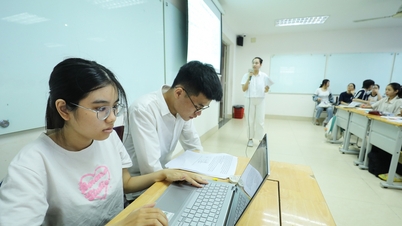



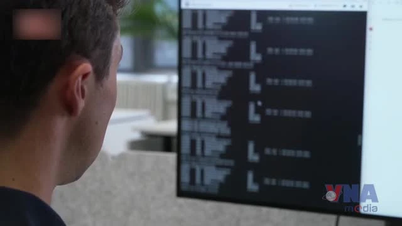





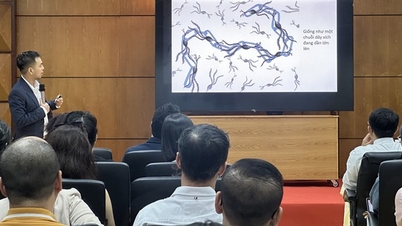
















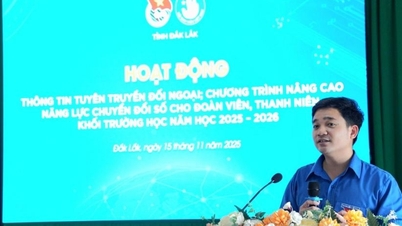









































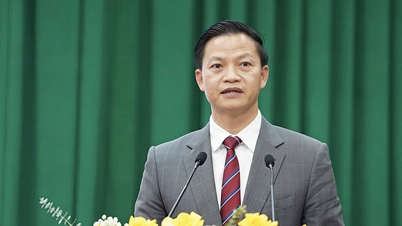












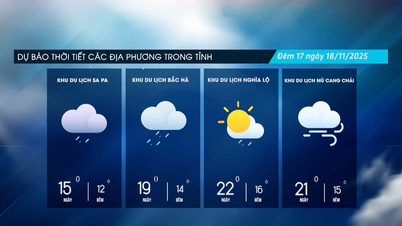



















Comment (0)